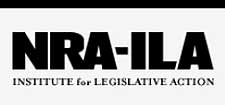

Fairfax, VA – -(Ammoland.com)- Gun control advocates would have you believe that, if only there were background check requirements for all gun sales and transfers and if only the so-called “private sale loophole” was repealed, criminals would no longer be able to obtain guns online or at gun shows without a background check.
Then, they’d have you believe, we’d see an end to the proliferation of guns and “gun violence.”
Backers of the Bloomberg-funded background check initiative in Nevada, for example, argue that the initiative law is necessary because “criminals must be prevented from acquiring guns in simple ‘no questions asked’ transactions.”
Psychologists and anthropologists describe the illogical and emotional attribution of a causal connection between events or things, despite a lack of empirical evidence, as “magical thinking.”
Magical thinking presumes a meaningful relationship between actions and events where there is not much more than coincidence in play – like acing a job interview while wearing “lucky” underwear.
Such flawed reasoning of a “now you see it, now you don’t” relationship between “universal background check” laws and criminals’ access to firearms was exposed as far back as 1997. The U.S. Department of Justice asked inmates in state and federal prisons about firearm use, and in particular, how they acquired the guns used in or possessed during their crimes. The vast majority of the prisoners pointed to purchases or loans by family members or friends, or illegal sources like theft, and “black market” or street buys. Retail gun stores were used less than ten percent of the time, and gun shows were the least likely source, with less than one percent of criminals acquiring their guns using this means.
More recently, a study by the University of Chicago Crime Lab published last year confirmed that the most likely sources of guns for criminals were fellow gang members and similar “social network connections.” The study, of detainees at the Cook County Jail, found that purchases from gun stores were rare, with only two of the criminals saying they bought their gun in a legal retail sale. Significantly, Illinois law at the time prohibited almost all private sales and transfers of guns between unlicensed persons, unless the person seeking to acquire the gun presented a valid Firearm Owners Identification (FOID) card. FOID cards are issued by the State Police after a background check, and criminals, drug addicts, aliens illegally present in the United States, persons with disqualifying mental health conditions and others are ineligible (and cardholders face revocation if they fail to continue to meet the application criteria after the card is issued).
Now another, admittedly more anecdotal, “study” by Houston’s ABC13.com sheds much of the same light on how criminals get their guns. The news outlet contacted every convicted murderer since 2014 in Harris County, Texas who used a gun in their crime, asking how the gun was acquired. Of those that responded, the overwhelming majority, almost 90 percent, used other than the legally regulated gun market, naming theft, street buys, the “black market,” or a “friend of a friend” sale. The rest used a gun store. None identified a gun show source.
Other interesting take-aways from the Houston survey were that the guns used were invariably handguns. Despite most of the criminals being legally prohibited from buying or possessing firearms and knowing whether they or not they were prohibited, they were able to get guns nonetheless.
As one survey respondent explained: “No matter the efforts of law enforcement along with laws, guns will always be available to people on the black market.”
In much the same way that the state law wasn’t a real barrier to the Illinois detainees, “universal background check” laws are unlikely to prevent criminals and other dangerous people from acquiring guns.
At most, what such laws may do is provide a mechanism for punishing people after the fact, once the gun crime comes to light, but this, too, isn’t always the case. A recent prosecution – the first and only one, to date – under the “universal background check” law imposed by Initiative 594 in Washington State two years ago, involved a gun that was illegally transferred between persons prior to being used in a murder. Only the initial alleged transferor – not himself a party to the murder – has been charged with violating the background check law. How this prosecution unfolds remains to be seen, as media reports indicate this person cannot be found.
This kind of magical thinking – the gun control narrative that persists in claims that expanded background check laws will prevent criminals from accessing guns and prevent crime – ignores the impact of existing laws on criminal behavior and what criminals themselves identify as the major sources of “crime guns.” Increased background checks and “assault weapon” bans are as likely to live up to these public safety promises as the other “common sense gun reforms” being floated out by the gun control crowd.
The reality, unfortunately, is that the principal consequence of such laws – besides hoodwinking the public –is to further burden the ownership of lawfully-acquired firearms by millions of law-abiding Americans.
About:
Established in 1975, the Institute for Legislative Action (ILA) is the “lobbying” arm of the National Rifle Association of America. ILA is responsible for preserving the right of all law-abiding individuals in the legislative, political, and legal arenas, to purchase, possess and use firearms for legitimate purposes as guaranteed by the Second Amendment to the U.S. Constitution. Visit: www.nra.org
